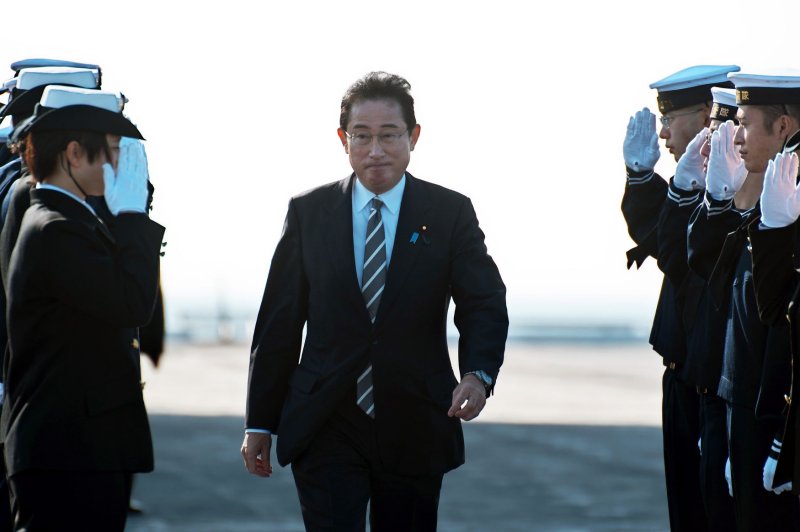Japan's Prime Minister Fumio Kishida aboard Japan Maritime Self-Defense Force's helicopter MCH-101 on the helicopter carrier Izumo at Sagami Bay in Kanagawa-Prefecture, Japan on November 6. He said Japan will increase its defense budget in the face of unprecedented threats. Photo by Keizo Mori/UPI |
License Photo
Dec. 16 (UPI) -- Japan on Friday enshrined military changes in three security documents, including a controversial counterstrike capability that opponents say is unconstitutional.
Under new Prime Minister Fumio Kishida, Japan sought to shed some of its post-World War II limitations on its military, including a provision that would allow the Japanese military to hit enemy bases and command-and-control nodes with longer-range standoff missiles.
"The international community is facing changes defining an era," said a statement that led Japan's new National Security Strategy. "We are reminded once again that globalization and interdependence alone cannot serve as a guarantor for peace and development across the globe.
"The free, open, and stable international order, which expanded worldwide in the post-Cold War era, is now at stake with serious challenges amidst historical changes in power balances and intensifying geopolitical competitions."
Those opposing the change charged that it is a possible violation of the country's exclusively defense-oriented posture under the war-renouncing Article 9 of Japan's Constitution.
Those favoring the change said it would be constitutional as long as an armed attack has occurred or was imminent; that there is no other way to halt an attack; and that the use of force is limited to the minimum necessary.
"We conducted a realistic simulation of whether current capabilities held by the Self-Defense Forces were sufficient to deter threats and protect the nation," Kishida said on Friday. "Frankly, the current capabilities are insufficient."
Kishida said Japan would increase its defense spending over the next five years to $313 billion, to prepare itself against what he called unprecedented threats from China, North Korea and Russia.
The changes in the key security documents, though, did not spell out what standards would be used in determining if such a situation had arisen and what enemy facilities would be targeted by Japan's strike capability.















